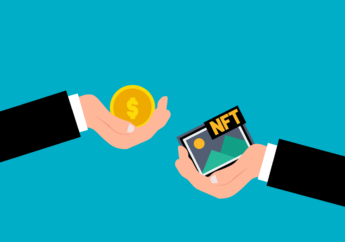Planning For The Unexpected: Strategies To Protect Your Financial Well-Being
by Mony Shah Finance 18 August 2023

Life is full of surprises, and some of them can have a significant impact on our financial stability. Whether it’s an unexpected medical emergency, a job loss, or a natural disaster, being prepared for the unexpected is crucial for safeguarding your financial well-being. Whilst there are payday loans in the UK that can help when you need it most, knowing how to manage your finances in a way that’s beneficial to you is essential. In this blog, we’ll explore essential strategies to help you plan for unforeseen events, giving you peace of mind and the confidence to navigate through tough times.
Emergency Fund: Your Financial Safety Net
An emergency fund is the first line of defense against unexpected financial hardships. It acts as a safety net when you encounter sudden expenses, such as medical bills, car repairs, or temporary unemployment. Aim to save at least three to six months’ worth of living expenses in your emergency fund. Keep the funds in a separate savings account that is easily accessible but not too easily accessible to avoid temptation. By having an emergency fund in place, you’ll reduce the need to rely on credit cards or loans during tough times, which can lead to debt accumulation.
Insurance: Protecting Your Assets
Insurance is a powerful tool to shield your financial well-being from potential disasters. Consider investing in the following types of insurance:
- Health Insurance: Medical emergencies can quickly drain your savings. Health insurance helps cover the costs of hospitalizations, treatments, and medications, ensuring you get the necessary care without facing exorbitant bills.
- Life Insurance: If you have dependents, life insurance ensures that your loved ones are financially protected in case of your untimely demise. It can help cover outstanding debts and mortgages and provide financial support to your family.
- Disability Insurance: This type of insurance provides income replacement if you become disabled and are unable to work. It ensures you can maintain your lifestyle and financial obligations even during difficult times.
- Homeowner’s or Renter’s Insurance: Protect your home and personal belongings from damage or theft. This insurance can help you recover financially in case of unexpected disasters like fires, floods, or burglaries.
Diversify Your Investments
Investing is an essential part of building wealth, but it’s vital to diversify your investment portfolio to mitigate risk. Avoid putting all your money into a single asset or industry. Diversification spreads risk across different assets, such as stocks, bonds, real estate, and commodities. In times of market volatility or economic downturns, having a diversified portfolio can help cushion the impact and prevent significant losses.
Estate Planning: Securing Your Legacy
Though it may seem morbid to think about, estate planning is critical for protecting your loved ones and ensuring your assets are distributed according to your wishes. Establish a will or a living trust to outline how you want your estate to be managed after your passing. Additionally, consider designating beneficiaries for your bank accounts, retirement plans, and life insurance policies. Estate planning can minimize legal hassles and potential disputes among family members during difficult times.
Continuously Educate Yourself
Financial literacy is an invaluable asset in preparing for the unexpected. Stay informed about personal finance topics, investment strategies, and economic trends. Attend seminars, read books, and follow reputable financial experts to enhance your understanding of money management. The more you know, the better equipped you’ll be to make informed decisions during challenging situations.
Reduce And Manage Debt
High levels of debt can be a significant burden during financial crises. Make a conscious effort to reduce your debts, especially high-interest credit card debts. Prioritize paying off loans with the highest interest rates first and avoid taking on new debts unless absolutely necessary. A manageable debt load will provide you with more flexibility and peace of mind during challenging times.
Life’s uncertainties are unavoidable, but with careful planning and preparation, you can protect your financial well-being and face the unexpected with confidence. Building an emergency fund, investing in insurance, diversifying your investments, estate planning, continuously educating yourself, and managing debt are all essential steps toward securing your financial future. By implementing these strategies, you can weather the storms of life and emerge stronger, more resilient, and better positioned to achieve your long-term financial goals.
Additional:







































































































